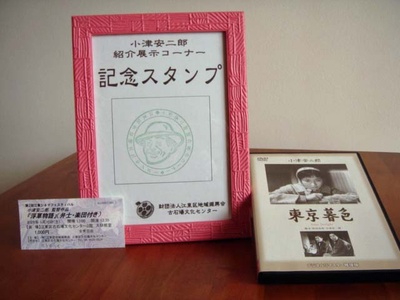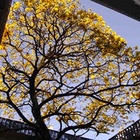I
I was always hanging around my mom. When she was preparing meals, I was always peaking over the table asking, “What’s that?”
From my earliest memories, I remember being intrigued by drawings I saw around the kitchen. Even now, I remember them clearly. The ones that were particularly appealing to me were the picture on the sardine cans and the drawing on the packs of oatmeal.
It looked to me like the sardine was wearing glasses, so I told my mom “It’s Papai (Father Noel),” which made her laugh. The Quaker in the picture on the oatmeal packets was wearing a wig, so I thought it was a woman. It looked exactly like the wife of a German who lived in the neighborhood, so I asked, “Why is our neighbor’s face on the food packaging?” What a strange imagination this child has, my mother thought.
Soon, I was obsessed with moving pictures and film.
Each week, I really looked forward to the Sunday matinees. With the other kids in the neighborhood, I walked to the Cinema Maracana. Oh the memories! They mostly showed Brazilian comedies or American Westerns.
The theater was filled with kids. We cackled and screamed at the thrilling scenes, and clapped and whistled for the climaxes. We were always making a racket.
And it wasn’t just matinees. My father thought it was a good way to get to know Japanese customs, so he recommended Japanese movies. Brought along by my mom, I was able to see a lot of films.
When I got to middle school, I would also sometimes just go with my friends.
It’s a long time ago now, so I don’t clearly recall the titles or plot lines. But I do remember how cool Yuzo Kayama’s The Young General (Waktadaisho) series was…how Tora-san was not just funny, but also evoked sympathy…and how “Three Daughters” was bright and cheerful. Countless scenes left an impression that remains to this day. The romantic scenes of a post-war nightclub or a tearful woman saying goodbye to her husband on a pier…or someone heading north on a night train to heal a broken heart…
I’ve really seen a truly wide range of films.
II
It was around my freshman year in high school. One day, I read a newspaper ad for a Japanese film. It was for An Autumn Afternoon (Sanma no aji), directed by Yasujiro Ozu.
It was the title that first caught my attention. I thought, I definitely want to see this movie.
“From an encounter, a bond is born.” Hearing those wonderful words in the movie, I fell in love with this film.
After seeing this film, my appreciation for Japanese movies deepened greatly. It was Yasujiro Ozu’s last movie, and I watched it in the theater. I watched his other films on special programs on Brazilian educational TV, or maybe at Yasujiro Ozu retrospectives.
Among Japanese directors, Yasujiro Ozu is the most Japanese. Like a tofu maker patiently and expertly crafting his delicate wares, Ozu was known as a director who passionately crafted his films.
That’s how he was described in a book I acquired in 1991: Ozu: Director of Everyday Beauty (published by Marco Zero).
Even though I knew nothing about Ozu’s masterpiece when I first encountered it over 20 years ago, it had a great impact on me.
Among the many films I had seen before then, there were certainly some that depicted “family”. A daughter gets married, leaving the father all alone. Or the parents get old and have to go live with their daughter or son…or one of the parents dies. These other movies depicted something ordinary that any family might face.
However, Ozu’s family is a unique family. It’s filled with people who you just naturally feel an affinity for, who feel like they’re literally your own family members.
The daughter doesn’t want to leave her father on his own, so she has no intention of getting married. Aware of that, her father announces he’s getting remarried. Hoping to make his daughter happy, he puts on quite an act to prove he’s serious. In the end, the daughter goes off to be a bride. Once back from the wedding, the father is sitting in his kitchen, quietly crying.
I’ll never forget that final scene in An Autumn Afternoon. The performance by actor Chishu Ryu was extraordinary.
Late Spring, Tokyo Story, Good Morning, Late Autumn, The End of Summer, An Autumn Afternoon. Like precious treasures, these works are stored safely within my heart.
“Someday, once again, I want to watch those Ozu films – so simple, yet overflowing with the taste of humanity.” Even now, those “dreams of a movie girl” are alive within me. (Even as time passes and I become the “middle-aged movie lady” I still believe I can fulfill those dreams.)
P.S. Quite a while after I wrote this, I went to Japan. While there, I happened upon an article in the paper about a film festival. And guess what? It was a collection of works by director Yasujiro Ozu! I attended the festival on January 10, 2009 (Saturday). The film they showed was Floating Weeds. It was a movie I’d never seen, one from the silent film era and they had a live orchestra and someone reading the lines out loud. Watching it the same way it would have been seen when it first came out was extremely moving. When my mother was a child (around 1925), she said every movie she saw had someone in the theater reading out the lines, so I thought how lucky am I to see it re-enacted right in front of me! Today, even Japanese people only rarely get the chance to experience that.

The photo is of the commemorative DVD from that day, “Tokyo Boshoku”, plus a commemorative stamp and ticket.
© 2011 Laura Honda-Hasegawa




